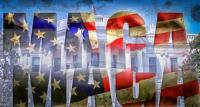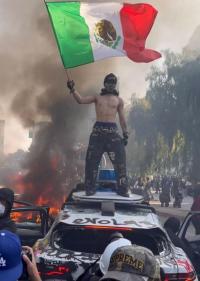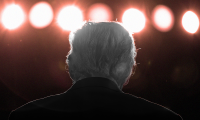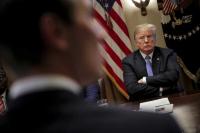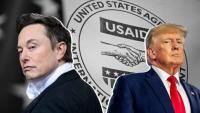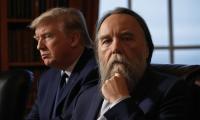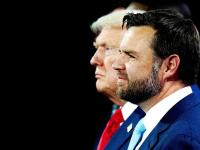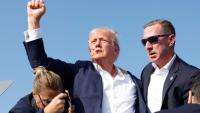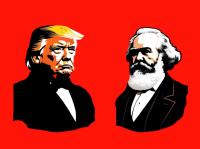USA
It’s Time for MAGA to Lead, Not Follow
America Party: The New Paradigm
Without the Fourth Political Theory, There Is No America Party
The Last Stand: Trump and the Fate of Humanity
Insurrection in LA - globalists strike back. Just beginning.
Trumpism vs. Decline: The Fight for America's Soul
Neocons are the globalists’ tool for partially controlling Trump
Trump’s War Against the Deep State
US vs USAID: That is MAGA revolution
Let Ideas Compete: A Challenge to Globalism
The trumpism in IR is reorganisation of Western hegemony
Trumpism, Pragmatism, and the End of Liberal Globalism
Trump’s Victory: A Global Conservative Revolution
The victory of Donald Trump in the U.S. presidential elections is a historic event of global significance, comparable to the events of 1917 or 1945. It marks the beginning of a fundamental shift in the world order, requiring deep analysis and explanation. Yes, in Russia, many consciously attempted to downplay the importance of these elections. However, this was done to avoid “jinxing” it, as Russians are very mindful of their words and prefer not to say everything they think. Sometimes, they even go to great lengths to conceal it.
Trump: Bringer of Peace
Alexander Dugin contends that Donald Trump’s rhetoric is reshaping the American political landscape by addressing the growing discontent with the Democrats’ destructive war-driven foreign policy, while Kamala Harris, lacking both vision and charisma, struggles to connect with an increasingly disillusioned electorate.
Lacan and Psychedelic Trumpism
Alexander Dugin applies Lacan’s three orders to US politics, arguing that while Kamala Harris and the Democrats seek to dismantle traditional structures, “psychedelic Trumpism,” influenced by figures like Curtis Yarvin, Peter Thiel, and J. D. Vance, alongside the Alt-Right, counters from the right, with a warning that a Harris victory could spell the end of humanity.
Alexander Dugin: 2024 Us Presidential Election - Russia Will Win Regardless Of Outcome
If Trump wins, he will act differently than he did during his first term in office.He won't have another chance to put his ideas into action. And he does have ideas. He wants to change everything in both US foreign and domestic policy. And now he's not gonna care about the Swamp. He will have to napalm it.
Kamala Harris and Marvel Politics
Western Conservatives as Allies against Liberals
Trump vs coup d'etat of globalists
A Debate between Beavis and Butt-Head: Who Governs America?
Trump vs Biden. The Game of the Apocalypse
Tucker Carlson and MAGA Communism
The Events in Texas: A New Civil War?
Alexander Dugin’s Neo-Eurasianism and the Eurasian Union Project:
The day after Vladimir Putin announced the goal of establishing a Eurasian Union between the Russian Federation, Belarus, and Kazakhstan, an important article appeared in the Financial Times.[1] In that article, Charles Clover asserted that Putin’s announcement marked “the epitome” of the ambitions of “a small group of committed ‘Eurasianists,’” Alexander Dugin foremost among them. According to Clover, Dugin, head of the International Eurasianist Movement, even took credit for most of the content of Putin’s announcement at a conference at the University of Moscow the day the announcement came out, claiming to have helped in its preparation. [2] Before leaving the topic of Dugin’s influence on Putin’s Eurasian Union project, Clover recalls John Maynard Keynes’s acute remark that “madmen in authority, who hear voices in the air, are distilling their frenzy from some academic scribbler of a few years back.” In this paper, I argue that a comprehensive analysis of the proposed Eurasian Union and its underlying political theory must pay more attention to the recent writings of the “academic scribbler” Alexander Dugin, the leading theorist of Eurasianism.[3]


